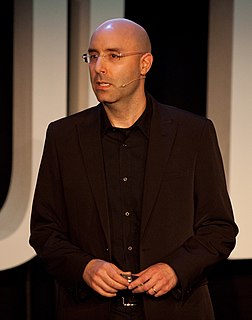A Quote by Mitch Joel
Mobile is no longer about what you can do on your cell phone. Mobile is all about doing more, all of the time.
Related Quotes
If you believe that the mobile phone is the next supercomputer, which I do, you can imagine a datacenter that is modeled after, literally, hundreds or thousands or millions of mobile phones. They won't have screens on them, but there'll be millions of lightweight mobile-phone processors in the datacenter.
It's hard to say conversation has become a minimal thing, because look at the rise of mobile communications in the last 10 years. It used to be only the President had a mobile phone. Now everyone on earth, even if they have nothing else, they have a cell phone. It's a larger anthropological shift in my mind than even the tattoo age in the United States.
Millennials regularly draw ire for their cell phone usage. They're mobile natives, having come of age when landlines were well on their way out and payphones had gone the way of dinosaurs. Because of their native fluency, Millennials recognize mobile phones can do a whole lot more than make calls, enable texting between friends or tweeting.
In Indonesia, Qualcomm, in a joint project with Grameen Foundation, has provided a range of mobile phone-based services to individuals. This project facilitates the creation of businesses for those living at the bottom of the economic pyramid and, at the same time, extends telecommunication access to people who cannot afford a mobile phone.
I'm excited about mobile; clearly that's important. Mobile devices are kind of at the opposite end of PCs, in that PCs are pretty open and you can do a fair amount with them, but many mobile devices aren't. We're excited at the idea that we can make the same kind of contribution in the mobile space. So that's one thing coming down the pike.
Pandemic-proof means the mobile phone has to be used and it has to be used in such a positive way that your next invention has to say, 'You know what, I am going to get another 30-40-50 million users that are out there onto my product through my mobile phone and that's going to help me sell what I do.'
India for sure is a mobile-first country. But I don't think it will be a mobile-only country for all time. An emerging market will have more computing in their lives, not less computing, as there is more GDP and there is more need. As they grow, they will also want computers that grow from their phone.
The dynamic is unmistakable: fixed lines for phones have been declining at a three-percent rate for the last several years, while the number of Americans opting for cell phone calling keeps increasing. If you are a fixed line provider this trend means trouble. Many of the fixed mobile convergence strategies under consideration end up utilizing a smart phone or dual-mode VoWLAN/Cellular phone that works like a landline phone in the local area and then converts to cell phone calling.
































